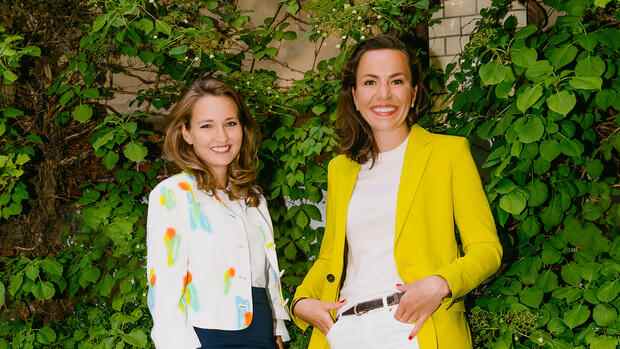Berlin, Dusseldorf Start-ups founded by women in Germany have fewer employees, receive significantly less funding and remain a rarity in the male-dominated start-up industry. This picture is only slowly changing, as can be seen from the Female Founders Monitor 2022 published by the German Start-up Association on Tuesday.
Although the proportion of female founders increased by four percentage points from 2020 to 2022, it is still only one fifth. “Unfortunately, women do not correspond to the common, subconscious image of the ‘good founder’,” says the head of the learning start-up Culcha, Katja Nettesheim, who took the step of starting her own start-up three years ago despite the doubters.
The study shows that female founders generally raise significantly less and less frequently venture capital to finance their start-ups than their male counterparts and rely more on equity and bank loans. On average, they achieve a funding volume of just 1.1 million euros, compared to 9.7 million euros for men’s teams.
Start-ups run by women only have seven employees on average
One of the exceptions is the Fintech Topi. Founders Charlotte Pallua and Estelle Merle raised $45 million for further growth this year, arguably one of the largest rounds of financing for a German start-up run by women.
Top jobs of the day
Find the best jobs now and
be notified by email.
“During the fundraising process, we never had the feeling that our gender played a role,” Pallua told Handelsblatt. Topi now has 40 employees, which is significantly more than the average start-up run by women, which, according to the monitor, only has seven employees.
>> Read also: 30 percent fewer start-ups – only one industry is developing positively
Dagmar Bottenbruch, head of Silicon Valley Bank’s Frankfurt office, believes that things are moving: “Many venture capitalists and their institutional investors are increasingly making sure to diversify their portfolios. At the same time, there are increasing numbers of investors who are focusing on female founders.”
Hardly any female investors on the other side
Jaclyn Schnau has had very different experiences than the Topi founders. She is currently holding financing talks for her start-up Pumpkin Organics. “I am convinced that women are treated differently than men.” Among other things, she justifies this by the fact that she very rarely sits across from other women.
According to the State of European Tech report by venture capitalist Atomico, there are even fewer female investors than start-up founders. Only about every tenth venture capital investor in Europe is female. The Female Founders Monitor shows that four out of five female founders believe that they are more critically scrutinized than their male counterparts when making investment decisions.
“I am convinced that women are treated differently than men.”
(Photo: Pumpkin Organics)
“Maybe more female investors would help,” says Schnau. “But just as importantly, venture capital investors aren’t always looking for the next unicorn for their personal bank account, but for the startups with the greatest benefit to our society.”
She herself offers sustainable baby and children’s food with Pumpkin Organics. Social benefit is particularly important to her. This unites her with other women’s teams who, according to the Female Founder Monitor, assign a particularly important role to the benefits of their start-up.
Difficult compatibility of start-up and family
Female and male founders work an above-average amount of more than 50 hours a week on average. This changes comparatively little if another task is added with children. “I also founded to be able to work more flexibly,” says the head of the learning start-up Ubimaster, Jana Krotsch, who has three school-age children herself.
She had previously worked in a large corporation with rigid structures. “But that doesn’t mean that I work less today than before – quite the opposite,” says Krotsch. She finds it positive that she can organize her working hours herself.
The co-founder of the Dresden robotics software start-up Wandelbots, Maria Piechnik, is not deterred by the double workload and is of the opinion that founding a start-up can be reconciled with the family: “Nevertheless, it costs blood, sweat and Tears. I still don’t want to work less,” she says. “I think when you start a company, you want to work a lot for it.”
>> Read also: How do you create visibility for your own performance? The master of self-marketing reveals her tricks
The managing director of the start-up association, Franziska Teubert, calls for more support and reliable security for women entrepreneurs when starting a family: “This includes maternity leave for the self-employed, more flexible parental leave, better tax deductibility of childcare costs and the nationwide expansion of qualitative childcare offers. “
Start-ups run by women are often said to have lower growth ambitions than their male counterparts. But there are also female founders who are pursuing the dream of being valued in the billions: Piechnik, whose husband Christian is Managing Director of Wandelbots, says: “Of course we want to be a unicorn. We want to show that this is also possible in East Germany and that you can also make a difference here in the region.”
With the recent success of the fintech, Topi founder Merle also wants to encourage other women to set up companies so that the average will level out in the future.
More: Founders sound the alarm and want more money for growth and innovation
